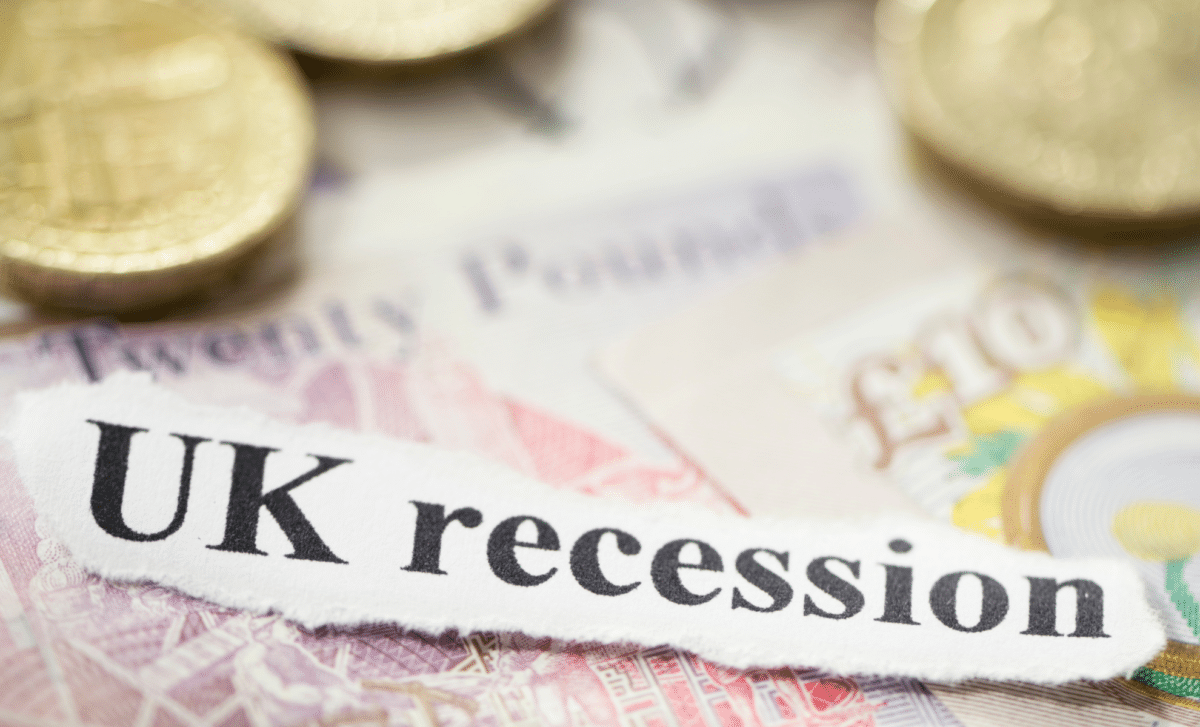As the City awaits the new revelations next week, anticipation looms over the fate of the UK economy, hanging in the balance of whether it succumbed to a recession in the fourth quarter. Despite a protracted struggle marked with sluggish progress, the forthcoming announcement will unveil the culmination of the economy’s intricate journey, exposing its resilience or vulnerability in the face of formidable challenges.
Economic Uncertainty as UK Faces Potential Recession
Economic figures slated for release this Thursday will finalize the fourth-quarter outlook, unveiling whether the total production value in December decreased. If it contracts for the second consecutive quarter, the UK would technically enter a recession.
The potential recession could impact market sentiment and political dynamics, especially with an impending election. Rishi Sunak’s commitment to economic growth as a cornerstone pledge for 2023 would face heightened significance if the year concludes with a recession.
Impacts of Extreme Weather Events on the UK Economy
Next week, experts anticipate a 0.2% GDP drop, potentially resulting in a 0.1% quarterly contraction. Santander’s Gabriella Willis notes this could brand the UK with the unwelcome ‘badge’ of recession. “In typical British fashion, the weather is an important part of the December GDP picture too. She added.
The impact of storms Elin, Fergus, and Gerrit, along with a ‘mini-tornado’ in Greater Manchester, may have hindered the construction sector and disrupted services.
The line between low growth and modest GDP declines blurs, with criteria for a technical recession being somewhat arbitrary. Simon French, financial expert at investment bank Panmure Gordon, called UK GDP going back to 2021 a “series of random numbers trending around zero.”
Despite the challenging numbers, a brighter outlook is emerging, especially with anticipated lower interest rates.
Positive Signals Illuminate the Path to Economic Resilience for the UK
As the year begins, James Smith, developed market economist at Dutch bank ING, notes a brighter start for the UK economic outlook.
Positive signs are emerging in sentiment indicators, with the services purchasing manager’s index (PMI) moving further into growth territory, in contrast to the wider eurozone still experiencing modest contraction.
Falling mortgage interest rates contribute to improved sentiment, and the anticipation of the Bank of England cutting base rates in the summer as inflation heads back to its 2% target adds to the positive outlook. Lower repayment costs are expected to boost demand by enhancing consumers’ spending power.
Santander’s Willis also said: “The UK recession, if confirmed, looks set to be as short and shallow as they come.
“Looking ahead, we see reasons to be a little more upbeat on 2024, with economic surveys for January suggesting 2024 started on a better footing.”









